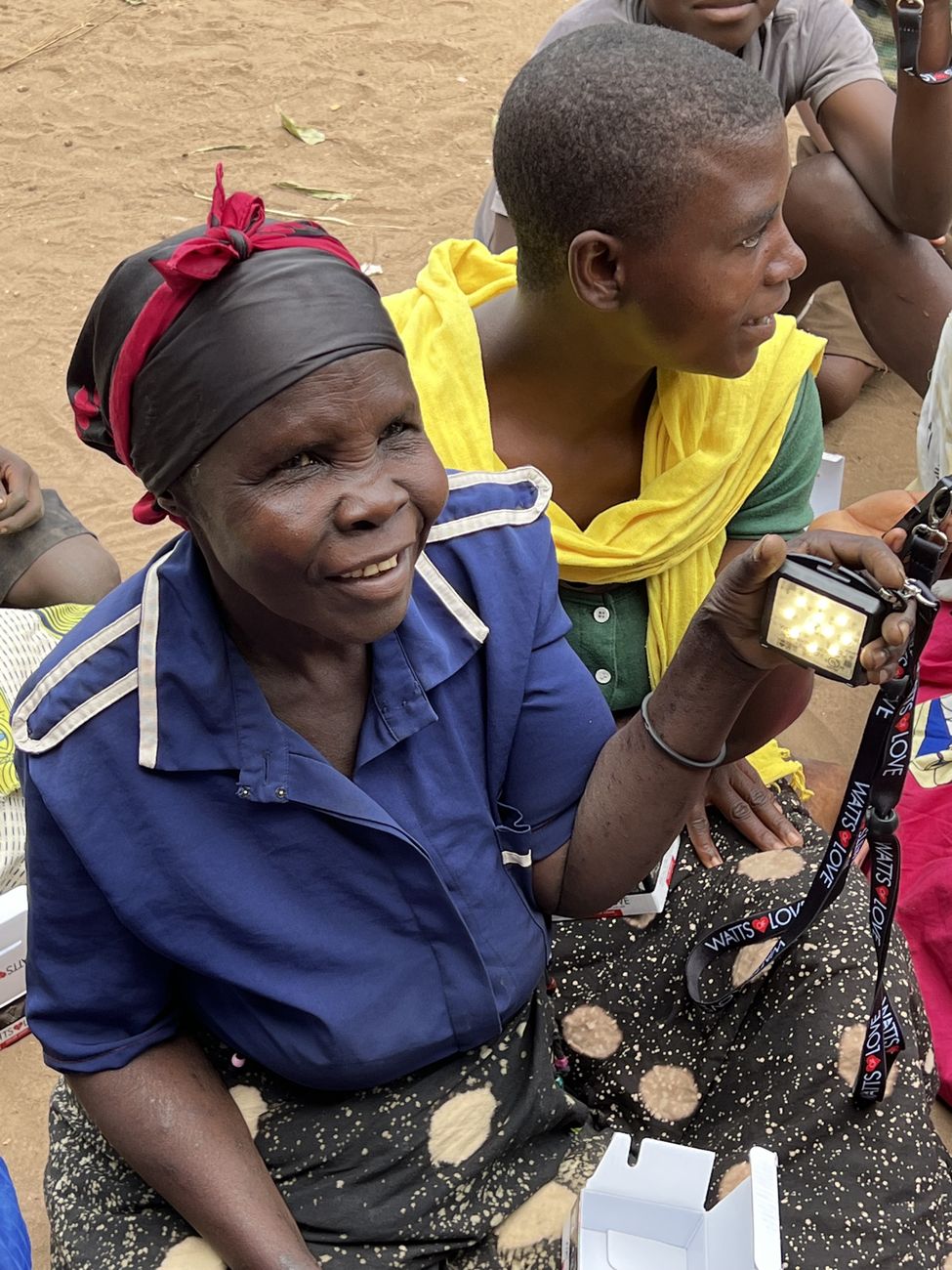| Nancy Economou shows one of her lights. Photo: Jim VandeHei/Axios BANDERA, Malawi — Nancy Economou is a kind, affable, middle-aged, single mother of five boys from the Chicago suburbs. - She has also likely delivered more free solar light to more poor women in more poor nations than any person in America.
Why it matters: Her life is a leadership lesson on how ordinary people can do extraordinary things with entrepreneurial ambition and thinking. - She cooked up her own not-for-profit startup after discovering that in the poorest of poor villages, young women have little access to something all of us take for granted — light. That's not a typo.
- If you live in remote villages of the Philippines or here in Malawi, light is expensive (kerosene fuel or batteries aren't free), dangerous (kerosene easily spills or splatters and burns) and unavailable to many when the sun goes down.
So Economou created Watts of Love to bring safe, free, individual solar lights to tens of thousands of women, so they can work or learn at night. (See item below for details on the lights.) - She then teaches them the simplest of economics — the trickle-down effect of saving money to buy, say, a live chicken, which can lay eggs, which can feed their kids or be sold for money to buy a goat.
It's wild to visit people who received lights months ago, and hear them tell their success stories. Watts of Love lights. Photo: Jim VandeHei/Axios I brought my two sons here to witness Nancy's work, and help deliver and explain the lights. A lesson in leadership unfolded too — full of tips for all of us. - Trust your gut: Nancy convinced herself a safe, user-friendly light improves lives, one at a time. She plunged in after her family lost almost everything in the housing crash. With five kids, "risky" was a wild understatement.
- Think big, start small: She started by traveling with a few boxes of bulkier lights and taught a few local women how to use them. She quickly found product-market fit: They needed and used them as envisioned. She started patenting her product.
- Scaling matters: One American, with a pallet of boxes, in foreign lands was terribly inefficient. She realized she needed smaller lights to maximize the number she could cram into boxes. More importantly, she needed a franchise model. So she adopted a "lighthouse strategy" to enlist and pay local leaders to help distribute and explain the lights. It's working.
- Shine: Like any successful entrepreneur, she has contagious belief and ambition. That attracted us and many others here. It also has attracted about $1.7 million in funding to spread light. Like any ambitious entrepreneur, she's looking for donors to expand her enterprise to at least 5X the size. The total addressable market (TAM, in startup speak) is sadly almost unlimited.
The big picture: The best part of the trip was watching how people light up when someone cares enough to simply show up — and show interest. A good life lesson is tucked in there. | 






No comments:
Post a Comment